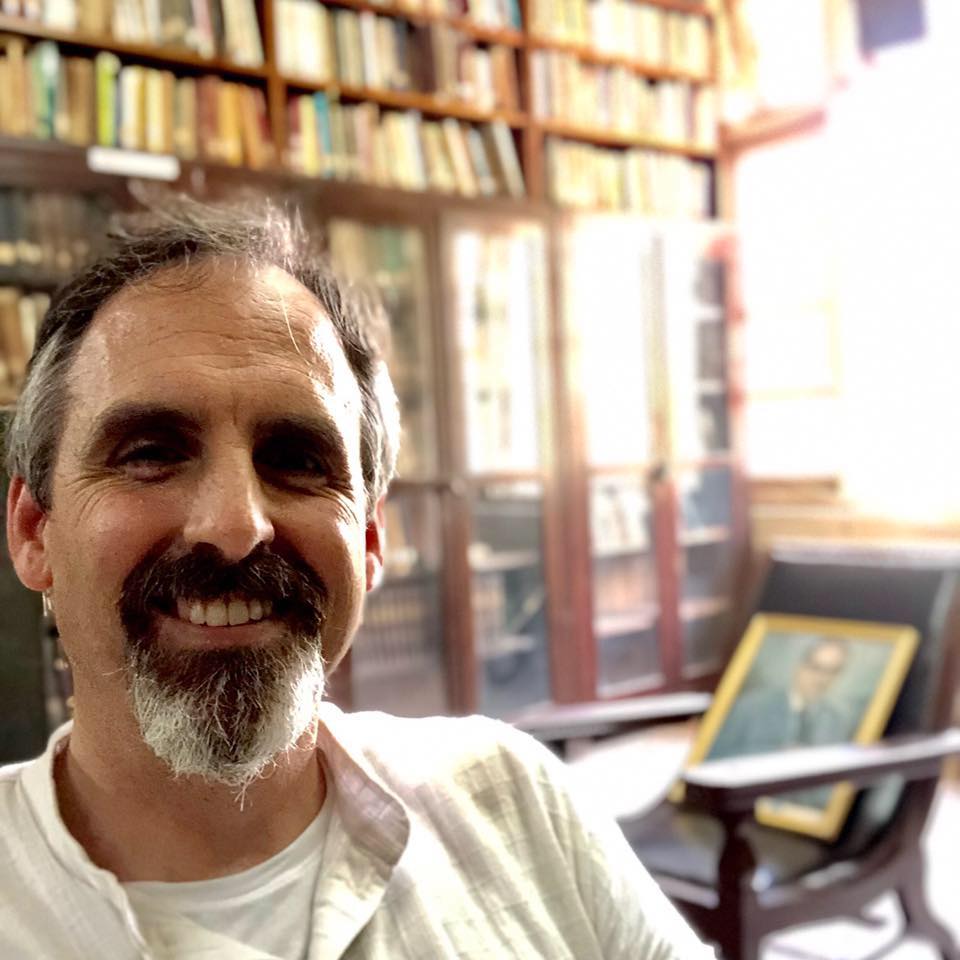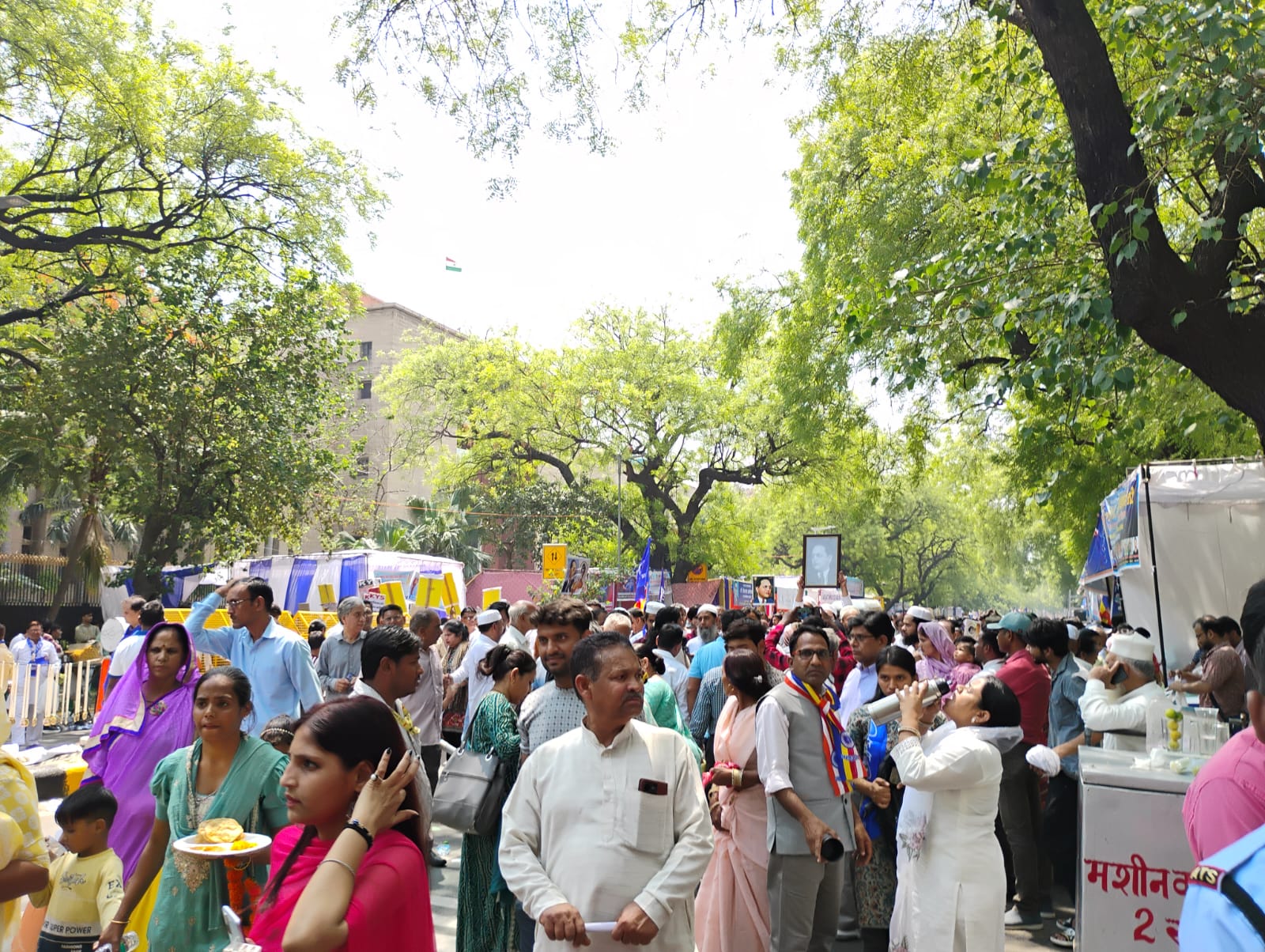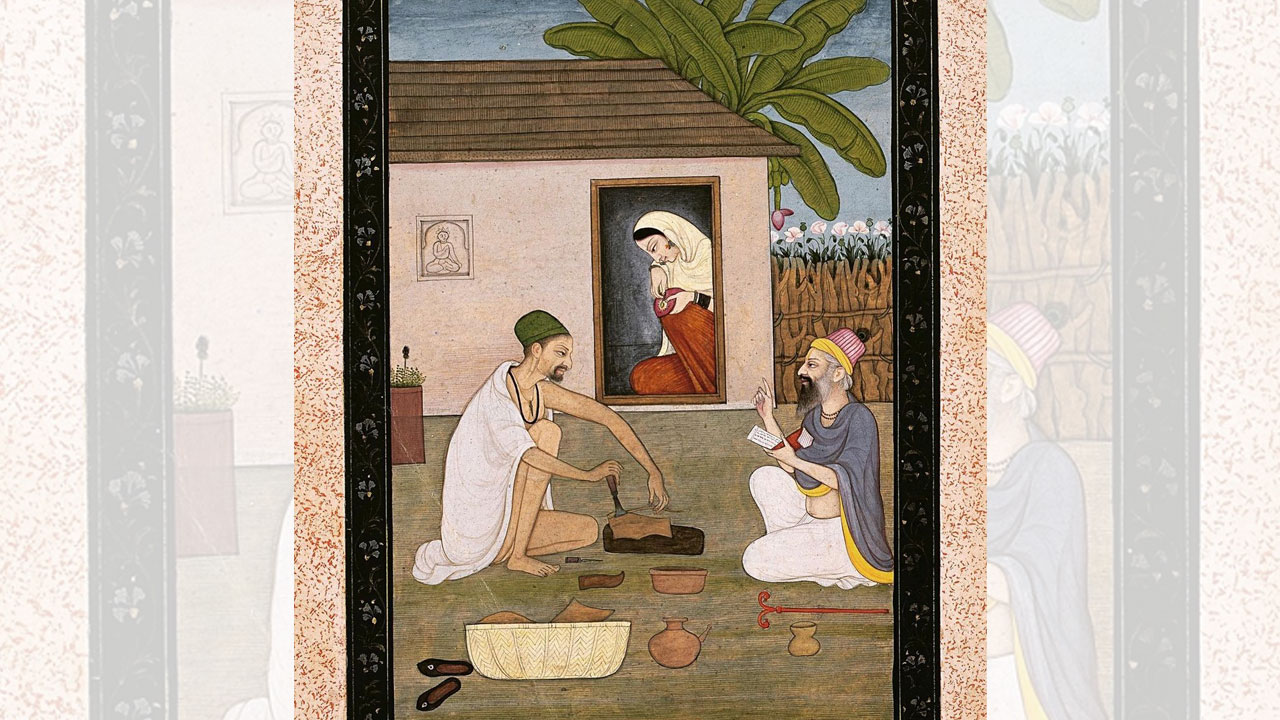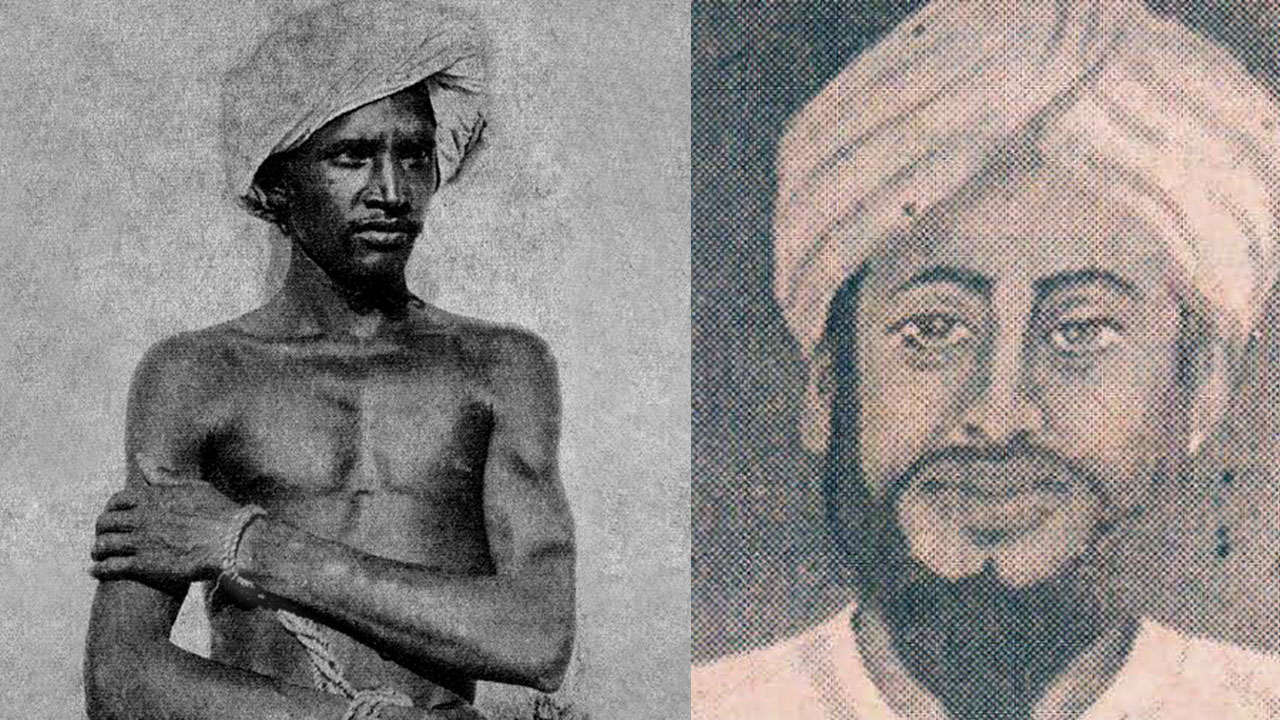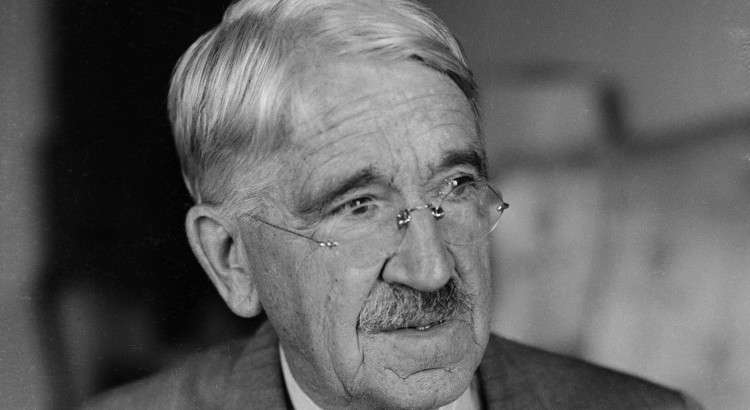
By the 1950s, Bhimrao Ambedkar had experienced all the ranges of life’s vicissitudes. He had felt the exclusion and pain of being an “Untouchable” in the Hindu caste system. He had seen electoral successes and setbacks as a representative of his people, now called by the labels of Dalits or Dalitbahujans. He had come close to the sources of power, being the architect of independent India’s Constitution and an advisor, albeit an eventually estranged one, to Prime Minister Nehru. Few formally celebrated his legislative accomplishments in India, but the story was different elsewhere. In June 1952, Ambedkar was recognized by his alma mater, Columbia University in New York, with an honorary degree in recognition of his role in framing the Indian Constitution. New York was worlds away from his normal haunts in Bombay or New Delhi, but Ambedkar surely recognized its charms and vivacity – he studied there from 1913 to 1916 under some of the best professors America had to offer. But on his visit in June 1952, there was one person whose absence he felt deeply: John Dewey, the American pragmatist philosopher and former teacher of Ambedkar from his days at Columbia University. As fate would have it, Dewey died after a short illness 1 June 1952, as Ambedkar was on his way to New York. Writing to his wife, Savita, he lamented that “there are many old friends who have gathered around me and [are] helping me in all sorts of ways. I was looking forward to meet[ing] Prof Dewey. But he died on the 2nd when our plane was in Rome.” Ambedkar had many teachers in New York, but none compared to Dewey, as his next words to his wife reveal: “I am so sorry. I owe all my intellectual life to him. He was a wonderful man.”[1] At this stage in his accomplished life, Ambedkar rarely showed absolute humility or inaccuracy, at least not in his private letters. We must take his words seriously and explore Ambedkar’s debt to Dewey.
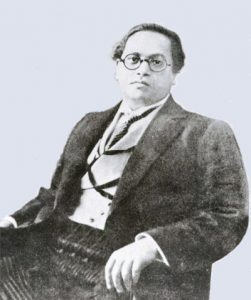
Other scholars have noticed this debt, but more must be said about its specifics. In the 1930s, Ambedkar would write that “The best friends I have had in my life were some of my classmates at Columbia and my great professors, John Dewey, James Shotwell, Edwin Seligman and James Harvey Robinson.”[2] Eleanor Zelliot concludes her study of Ambedkar’s education with the judgment that “John Dewey seems to have had the greatest influence on Ambedkar”.[3] K.N. Kadam tells us that “Dr Ambedkar took down every word uttered by his great teacher [Dewey] in the course of his lectures; and it seems that Ambedkar used to tell his friends that, if unfortunately Dewey died all of a sudden, ‘I could reproduce every lecture verbatim.’”[4] Dewey clearly influenced Ambedkar, but how? If we look at the relationship between these two original thinkers, we will see that Ambedkar is best understood as a pragmatist following in the line of John Dewey’s philosophy, but with emphases and creative additions that could only come from his status as a Dalitbahujan located in the Indian context. Ambedkar’s urges to be an activist and an advocate also bring a communicative flavour to his form of pragmatism, something that is not emphasized in just this fashion in the thought of John Dewey. Ambedkar’s pragmatism is a novel philosophical orientation that encourages vigorous engagement with others through certain types of communication.
A giant among philosophers
Who was John Dewey? This may be a useful question to ask now, given the proliferation of philosophers and philosophies in the stories we tell about humankind’s intellectual explorations, but in the 1910s, this query would be asking for the obvious. Dewey was a giant in philosophical circles. Having honed his philosophical positions at the University of Michigan, explored education by running the “Laboratory School” at the University of Chicago, Dewey was hired by Columbia University with a halo of philosophical fame surrounding him. Like his fellow pragmatists William James (1842-1910) and Charles S. Peirce (1839-1914), John Dewey (1859-1952) emphasized community and experience in his philosophical writings. Rebelling against age-old European tendencies to fixate on the permanent, the changeless, and the certain, Dewey’s philosophy emphasized the changing and uncertain nature of the world. He emphasized the transactional character of our activities, including that of “knowing”, by frequently employing the notion of “experience”. Experience was an interaction between organism and environment, and not simply a series of images inside an agent’s head as an idealist would put things. Humans, being living organisms, shared much in common with the rest of the natural world: we are animated by purposes and desires and impulses, and these translate into paths of activities that make use of some aspect of our environment. These are called “habits” by the pragmatists. Habits are not merely physical, as there can be habits of how we talk to others or how we solve problems that perplex us. They are not negative traits, since habits serve as means to get to the ends we want. Life, for Dewey, was best seen as a quest to intelligently shape our habits such that we get the individual and group goals that we see as worthy of our pursuit. Philosophy on such a scheme does not capture or recite timeless truths about the ever-changing world; instead, it serves as one tool among many to get what we want out of an uncertain environment.

First lesson in ‘liberty, equality and fraternity’
Dewey lived a very long life, so this brief account of his philosophy is necessarily a simplification. But it captures its general orientation, and it also is an apt description of what Dewey was thinking when young Ambedkar first stumbled into his classes at Columbia University. Even though Ambedkar started his education at Columbia University in 1913, I have found no evidence that he was exposed to Dewey until 1914. Using a course list from Ambedkar’s transcripts in connection with the original Columbia University Bulletins, I have determined that the first Dewey class Ambedkar took was in Fall 1914 titled “Philosophy 231: Psychological Ethics and Moral and Political Philosophy”. This was part of a yearlong sequence of two courses, Philosophy 231 and 232, but the second course is not listed on the copies of Ambedkar’s transcripts that we possess. Ambedkar is noted as taking two other courses in 1915-1916 that we can verify as Dewey’s courses: Philosophy 131 and 132, “Moral and Political Philosophy”.[5] I have found the student lecture notes for the Philosophy 131-132 courses in which Ambedkar is listed as a substitute note-taker for three days.[6] It was in the spring of 1916 that Ambedkar heard – perhaps for the first time – the motto of the French revolution from Dewey: “the moral standard, aim, as a common good … the notion consequently of the control of the individual in the name of the common good. Liberty, equality, fraternity, and the name fraternity means common good.”[7] These concepts would assume prominence later in Ambedkar’s life, guiding his quest for social reform. Pragmatists such as Dewey were not concerned with one of these values, such as the individual notion of liberty or freedom of action. Such freedom must also be pursued with the idea of creating certain sorts of community. Thus, the values of equality and the creation of feelings of fraternity are also important. Ambedkar listened to this American philosopher expound on the motto from Europe, but surely he was mentally connecting it to his past and future battles for social justice in the Indian context. Can one achieve equal rights for Dalitbahujans without sacrificing fraternity? This would be one of the most prominent balancing points in Ambedkar’s later struggles against communism, a philosophical orientation that he believed could achieve equality (at least in terms of material wealth) only at the cost of fraternity. One cannot achieve one goal while destroying the hope of achieving the other goals, the pragmatist line of thought goes. Ambedkar thereby always sought to achieve freedom and equality for Dalitbahujans while preserving the conditions for fraternity. I submit that he gained this foundation from such sources as Dewey’s lectures, even though Ambedkar would change and alter this way of thinking to fit the Indian context. Ambedkar was an original thinker, but his creativity extracted and appropriated vital values from American pragmatism.
Democracy as a way of life
Another way in which Ambedkar was influenced by Dewey’s form of pragmatism was through his books. Ambedkar was a voracious reader, consuming knowledge from a huge range of areas in the form of books. One of his letters on the way to London later in his life complains of being unable to get into his trunk full of books, thereby forcing him to “enjoy” the voyage without reading. What is left of Ambedkar’s personal library is now largely preserved at Siddhartha College in Mumbai, an institution his People’s Educational Society founded in 1946. Some other books can be found at the Symbiosis Institute in Pune. In browsing both of these caches of books, I have come to the conclusion that no author is more represented than John Dewey. At Siddhartha College, I discovered the following books written by Dewey: Ethics (1908), The Influence of Darwin on Philosophy (1910), German Philosophy and Politics (1915), Democracy and Education (1916), Experience and Nature (1929), The Quest for Certainty (1930), Freedom and Culture (1939), and Problems of Men (1946). Books about Dewey and his pragmatism are also included in this collection: Sidney Hook’s John Dewey: Philosopher of Science and Freedom (1950), Jerome Nathanson’s John Dewey: The Reconstruction of the Democratic Life (1951), Paul Arthur Schilp’s The Philosophy of John Dewey (1951), and A. H. Johnson’s The Wit and Wisdom of John Dewey (1949). At the Symbiosis Institute, I came across two additional books related to pragmatism: Dewey’s Essays in Experimental Logic (1953) and Joseph Ratner’s collection of Dewey’s essays, Intelligence in the Modern World: John Dewey’s Philosophy (1939).
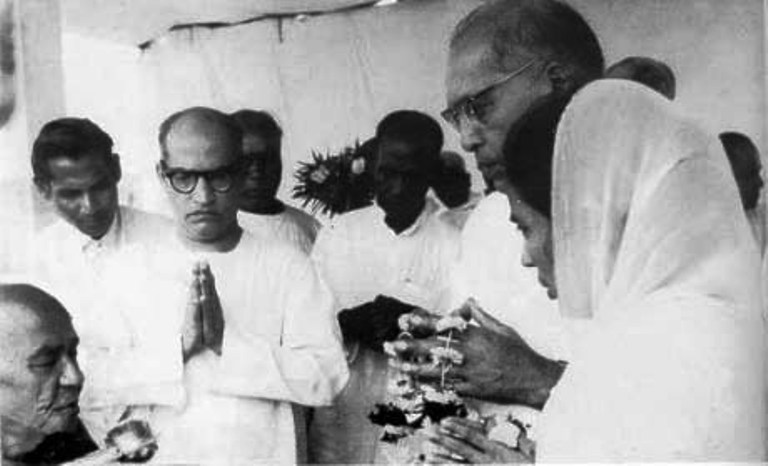
Of these books, two of the most extensively annotated and underlined are works by Dewey. As noted by his own hand inside the cover, Ambedkar acquired Dewey’s Democracy and Education (1916) in January 1917, while he was in London.[8] This book is an important work, as it crystalizes much of Dewey’s thought. It relates moral philosophy, science, history, and career training to the general category of education. Education, according to Dewey’s revision of his concept, is implicated in how societies transmit and preserve themselves. New members of a society are created in and through their experience in schools. Dewey argues in this work that not only environments can educate individuals, but that agents can also take a role in purposively shaping environments – such as that of the classroom – to make them more effective in creating the sorts of habits that we need in a democracy. Thus, education relates to democracy insofar as democracy denotes a habit of interacting with others and in solving problems in concert with one’s peers. Democracy was a habit, or a way of life, and it was for Dewey an intensely personal affair that conditioned and created publics.
This notion of democracy as a way of life among others resonated with Ambedkar. The caste system violated such a communal situation and orientation by separating and ranking individuals based upon birth castes. This ideal of democratic habits leading to democratic communities sank into his mindset to the extent that he began to make these arguments naturally. For instance, in his 1919 testimony to the Southborough Committee on the issue of extending the franchise to Indians, Ambedkar utters a criticism of the caste system as destroying democratic like-mindedness:
Men live in a community by virtue of the things they have in common. What they must have in common in order to form a community are aims, beliefs, aspirations, knowledge, a common understanding; or to use the language of the Sociologists, they must be like-minded. But how do they come to have these things in common or how do they become like-minded? Certainly, not by sharing with another, as one would do in the case of a piece of cake. To cultivate an attitude similar to others or to be like-minded with others is to be in communication with them or to participate in their activity. Persons do not become like-minded by merely living in physical proximity, any more than they cease to be like-minded by being distant from each other.[9]
These are largely Dewey’s words from Democracy and Education, adapted to fit an instance of religious discrimination through the mechanism of caste. Dewey’s conception of democracy clearly affected Ambedkar when he was asked to explain the evils of the caste system to a committee charged with extending the mechanisms of democracy to the various publics in India.
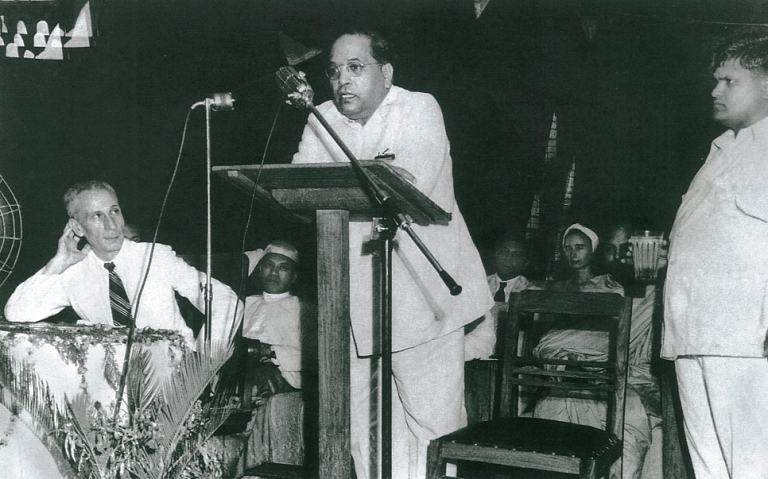
A central part of Dewey’s philosophy of democracy, however, was that democracy did not begin and end at the voting booth. It was more than this as a habit of interaction that we could have or fail to possess. Indeed, Ambedkar saw this from his reading of Democracy and Education, noting in his own hand a vital line in his copy of this book: “A democracy is more than a form of government; it is primarily a mode of associated living, of conjoint communicated experience.”[10] Caste destroys this habit that could create the shared interests and cooperation denoted by like-mindedness, and in the Indian context, Ambedkar saw that this schism between groups was furthered by a certain use of religion. Thus, in his controversial undelivered speech from 1936, “Annihilation of Caste”, he shows the enduring importance of this democratic ideal as a way of life by echoing this very line from his teacher’s great book. Ambedkar spoke Dewey’s words, but in a different context – that of the battle against caste-based injustice. He did note his debt to Dewey in that speech, however, in one specific passage. This passage is also notable because it introduces the concept of reconstruction as a method of social change:
Prof John Dewey, who was my teacher and to whom I owe so much, has said: “Every society gets encumbered with what is trivial, with dead wood from the past, and with what is positively perverse. … As a society becomes more enlightened, it realizes that it is responsible not to conserve and transmit, the whole of its existing achievements, but only such as make for a better future society.”[11]
The ellipses are Ambedkar’s own, and they excise a phrase dealing with education in Dewey’s original passage in Democracy and Education. This shows that Ambedkar was enamoured with Dewey’s pragmatism, but also that he wanted to extend it and change it into a vehicle of reform that would be up to the challenges of the Indian context. What remains common, however, is the pragmatist’s urge to not throw out everything from one’s past tradition; one must save what is useful, fix what is damaged, and abandon that which is harmful. In other words, one does not revolt against the past in the present, one reconstructs the past for the needs of the present. This is why Ambedkar asks his high-caste audience of reformers in this speech text to abandon pernicious shastras in an attempt to change the religiously infused mental habits that result in caste separation. Without such reconstruction, the hopes for instilling habits that create like-minded community members are minimal. This emphasis on reconstruction of the past as a way to a democratic future is a Deweyan trace in the social outlook of Ambedkar.
Religion, principles and rules
Religion is not only a cause of social injustice for Ambedkar. It also assumes an increasing prominence as a means for the alleviation of social injustice. Later in his life, he talks more and more about Buddhism and how it can be thought of as an egalitarian religion that guarantees equality, liberty and fraternity among all members of society. It does this through doctrinal commitments, such as to the fundamental equality of all humans, but it receives a boost in these endeavours through a methodological tool that Ambedkar took from Dewey. The other pragmatistic book that Ambedkar heavily annotated was Ethics, a book authored by John Dewey and James H. Tufts. The edition of the book that Ambedkar possessed was the 1908 version. The origins of this book in his collection are mysterious, but there is evidence that the activist, K. A. Keluskar, had gifted it to Ambedkar at an unknown time.[12] This book is important because it shows Dewey’s commitment to an individual transition from customary morality to reflective or reason-based morality. Moral progress happens, on this account, when individuals break free from custom and past ways of doing things and start to evaluate the comparative usefulness and worth of doing things in those ways. One may return to one’s customary habits of thought and action, but only after reflectively analyzing them. This surely grounds Ambedkar’s critique in “Annihilation of Caste”, since his goal there was to get orthodox Hindus to think about the roots of oppression within their customs and traditional texts.
Later in his life, Ambedkar reaches back to Dewey’s 1908 Ethics for a vital concept – the distinction between principles and rules in moral activity. Ambedkar extends this conceptual tool to fit his notion of religion and religious change. In his magisterial work, The Buddha and His Dhamma (1957), Ambedkar tackles the challenging topic of ahimsa or nonviolence using Dewey’s distinction between principles and rules in his Ethics. In his posthumous work on the Buddha’s doctrines, Ambedkar asks “whether His Ahimsa was absolute in its obligation or only relative. Was it only a principle? Or was it a rule?”[13] What Ambedkar is appealing to is a passage – underlined by Ambedkar in his personal copy of Ethics – authored by Dewey and Tufts: “Rules are practical; they are habitual ways of doing things. But principles are intellectual; they are useful methods of judging things.”[14] Rules are straightforward, but what they gain in explicitness they lose in flexibility and range of application. A rule may state “Do not kill”, but one wonders what that means in situations of less-than-lethal harm. Rules simply tell one to do or not do some specific action. On the other hand, principles serve as methods to judge actions, situations and events. These are more useful as they cover a variety of situations. Both the Buddha’s and Dewey’s views of experience entailed its ever-changing nature, a fact that rendered much of present and future life uncertain. Principles become our best intellectual tool to coalescing what we have learnt from our past experiences and marshalling those resources for future success in unpredicted situations. Principles are more pragmatic and reflective than merely following the customary lines of acting and judging.
Ambedkar appropriates this distinction in reconstructing the concept of ahimsa, indicating that it should be seen in the Buddha’s hands as a principle, not as a rule. According to Ambedkar, the Buddha’s teaching is to “‘Love all so that you may not wish to kill any’. This is a positive way of stating the principle of Ahimsa … the doctrine of Ahimsa does not say ‘Kill not. It says love all.’”[15] Love is a much more malleable and adaptive term, especially when compared to a mere prohibition on killing. One could refrain from killing another, yet still not instantiate a true Deweyan community of shared interests with that other person. This is the way that Ambedkar adapts Dewey’s thought into his view of Buddhism. Buddha was proffering love, Ambedkar maintains, and this principle should be useful in a range of situations. A mere rule to not harm would not enable the rich and deep sense of community that Ambedkar sought among all the publics in India.
One of the most important situations, of course, comes in the case of solving disagreements in situations of community. Ambedkar’s reconstruction of Buddhism speaks to this challenge. At one point in The Buddha and His Dhamma, Ambedkar explains all the aspects to right speech in a way that is animated by the principle of loving others:
one should speak only that which is true; that one should not speak what is false; that one should not speak evil of others; that one should refrain from slander; that one should not use angry and abusive language towards any fellow man; that one should speak kindly and courteously to all that one should not indulge in pointless, foolish talk, but let his speech be sensible and to the purpose.[16]
Lying behind this is the idea that we should constantly be seeking ways to still our self-focused anger and to instead love others, even our enemies or those who disagree vehemently with us. This is nonviolence, but a reconstructed form of it that de-emphasizes harm. Instead of killing, it centres on the maintenance and creation of fraternity among community members, now and in the future. Ambedkar’s vision takes the Deweyan ideas of democracy, reconstruction, and reflective method and merges them with the distinctively Indian tradition of Buddhism. What emerges is a reconstructed sense of Buddhism that can serve as a vehicle to empower Dalitbahujans and as a doctrine that hopefully creates more common ground among communal members. Ambedkar, like Dewey, did not want to solve a specific problem and create future ones by destroying needed relationships within one’s community.
Instead, Ambedkar combines these lines of Deweyan thought and sees the Buddhist religious orientation as a way to communicatively solve one’s problems now while maintaining needed relationships for future success. This was a point he noted even during the height of his political activity. When he addressed the student parliament of his newly formed Siddhartha College on 25 September 1947, he pushed the attentive student leaders to respect their opponents:
[A tyrant] need not pay any attention to eloquence because his will is law. But in a parliament where laws are made, no doubt by the wishes of the people, the man who succeeds in winning our opposition is the man who possesses the art to persuade his opponent. You cannot win over a majority in this House by giving a black eye to your opponent. … You will have to carry a proposition only by the art of speaking, by persuading [your] opponent, by winning him over his side by argument, either gentle or strong, but always logically and instructively.[17]
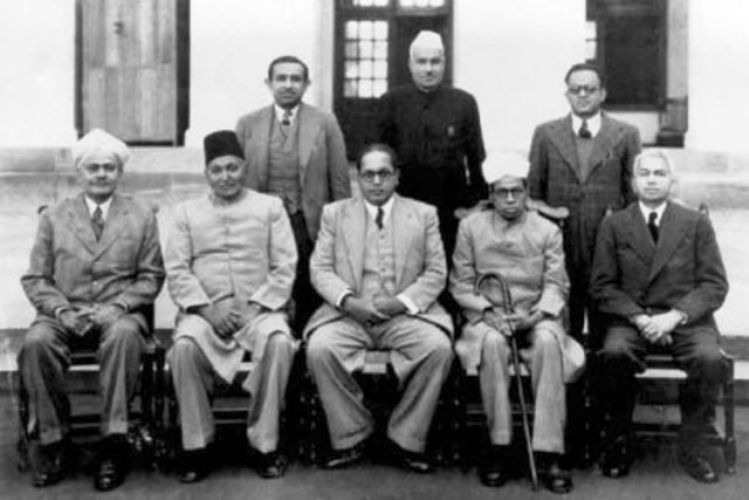
Communication and advocacy can be vigorous, but it must not destroy the hope of creating common ground with one’s opponents. Ambedkar’s own heated rhetoric did not always live up to this charge, but one can see the Deweyan ideal that he shaped in the Indian context. If democracy is a matter of habits of interaction that preserve and promote community, and matters of community involve some amount of shared interest and like-mindedness, then one cannot totally disrespect or write-off one’s opponents in their pushes for social justice. Justice is more than a matter of equality or liberty, it depends upon and requires fraternity among community members. Thus, communication becomes vitally important in Ambedkar’s scheme of Buddhism because it is a means of social change that is susceptible to guidance by Buddhist views of loving one’s interlocutors and opponents.
Much has been written on Ambedkar’s innovative programme of social reform.[18] This work points out valuable aspects to what Ambedkar was pursuing, and why he did things in those ways. The point that I have tried to make in various places, and to which I gesture here, is that we are best served to also consider Ambedkar’s efforts in light of his continuous dialogue with pragmatism.[19] As I have shown, there is reason to believe that Ambedkar admired and internalized Dewey’s ideas of deep democracy, reconstruction, and reflective morality and wove these into the tapestry of reform that his life represented. He was a pragmatist, albeit one with a distinctively Indian concern with the problems and boons of religions in a pluralistic community. Much more can be said about the relationship between Ambedkar the caste reformer and the American pragmatist Dewey, but it is now clear that Dewey’s influence can be charted in specific and traceable ways in Ambedkar’s writings, speeches, and activities. Like Dewey, Ambedkar was firmly committed to achieving equality, liberty and fraternity; unlike Dewey, he had the traditional materials and imaginative resources to see Buddhism as the religious means that could be reconstructed and used for these meliorative ends. It is in acknowledging this debt and foundation that we can start to appreciate what Ambedkar does with American pragmatism when he adapts it to the Indian context.
[1] Nanak Chand Rattu, Last Few Years of Dr Ambedkar (New Delhi: Amrit Publishing House, 1997), 35. Although Ambedkar writes in his letter that Dewey died on ‘the 2nd’ (2 June 1952), Dewey actually died on 1 June 1952.
[2] Columbia Alumni News, 19 December 1930, 12.
[3] Eleanor Zelliot, Ambedkar’s World (New Delhi: Navayana, 2013), 69.
[4] K.N. Kadam, The Meaning of the Ambedkarite Conversion to Buddhism and Other Essays (New Delhi: Popular Prakashan, 1997), 1.
[5] For the courses that Ambedkar enrolled in while at Columbia, see Frances W. Pritchett, “Courses Taken at Columbia”. Available online at: http://www.columbia.edu/itc/mealac/pritchett/00ambedkar/timeline/graphics/courses.html. I have gathered the course instructors from materials contained in Columbia University Bulletin of Information: Division of Philosophy, Psychology, and Anthropology Announcement, 1914-1915 (New York: Columbia University, May 30, 1914); Columbia University Bulletin of Information: Division of Philosophy, Psychology, and Anthropology Announcement, 1915-1916 (New York: Columbia University, 27 February 1915).
[6] For more details on these notes and the courses involved, see Scott R. Stroud, “Pragmatism, Persuasion, and Force in Bhimrao Ambedkar’s Reconstruction of Buddhism”, Journal of Religion, 97 (2), 204-243.
[7] The original typed notes from Homer H. Dubs can be found at the Center for Dewey Studies in Southern Illinois University, Carbondale. The original handwritten notes taken by Robert Lee Hale are located in the Butler Library Rare Book and Manuscript Collection at Columbia University.
[8] For more on Ambedkar’s engagement with this book, see Scott R. Stroud, “What Did Bhimrao Ambedkar Learn from John Dewey’s Democracy and Education?” The Pluralist, 12 (2), 2017, 78-103.
[9] Bhimrao R. Ambedkar, “Evidence before the Southborough Committee,” Writings and Speeches, vol 1 (Government of Maharashtra, 2014), 248–49. For the passage of Dewey’s that he is drawing up, see John Dewey, Democracy and Education, in The Middle Works of John Dewey, vol 9, edited by Jo Ann Boydston (Southern Illinois UP, 1985), 7.
[10] John Dewey, Democracy and Education, 93
[11] Bhimrao R. Ambedkar, “Annihilation of Caste”, Writings and Speeches, vol 1 (Government of Maharashtra, 1989), 57
[12] For my speculations on the dating of this gift from Keluskar, see Scott R. Stroud, “The Influence of John Dewey and James Tufts’ Ethics on Ambedkar’s Quest for Social Justice”, Relevance of Dr Ambedkar: Today and Tomorrow, Pradeep Aglave (ed) (Nagpur: Nagpur University Press, 2017).
[13] Bhimrao R. Ambedkar, “The Buddha and his Dhamma”, Writings and Speeches, vol 11 (Bombay: Government of Maharashtra, 1992), 345.
[14] John Dewey and James H. Tufts, “Ethics”, in Jo Ann Boydston (ed), The Middle Works of John Dewey, vol 5 (Carbondale: Southern Illinois University Press, 1908/1985), 301.
[15] Ibid, 346.
[16] Bhimrao R. Ambedkar, “The Buddha and his Dhamma”, 71.
[17] Bhimrao R. Ambedkar, “The Minority must always be won over, it must never be dictated to”, Writings and Speeches, vol 17 part 3 (Bombay: Government of Maharashtra, 2003), 378.
[18] See Christopher S. Queen, “Ambedkar’s Dhamma: Source and Method in the Construction of Engaged Buddhism”, and Adele Fiske & Christoph Emmrich, “The Use of Buddhist Scriptures in B.R. Ambedkar’s The Buddha and His Dhamma”, in Surendra Jondhale and Johannes Beltz (eds), Reconstructing the World: B.R. Ambedkar and Buddhism in India (New Delhi: Oxford, 2004); Dhananjay Keer, Dr Ambedkar: Life and Mission (Bombay: Popular Prakashan, 1990); Christophe Jaffrelot, Dr Ambedkar and Untouchability: Fighting the Indian Caste System (New
York: Columbia University Press, 2005).
[19] For some other explorations of this aspect to Ambedkar’s development, see Scott R. Stroud, “Pragmatism and the Pursuit of Social Justice in India: Bhimrao Ambedkar and the Rhetoric of Religious Reorientation”, Rhetoric Society Quarterly 46 (1), 2016, 5-27; Scott R. Stroud, “Pragmatism, Persuasion, and Force in Bhimrao Ambedkar’s Reconstruction of Buddhism”, Journal of Religion, 97 (2), 2017, 214-243; Arun P. Mukherjee, “B. R. Ambedkar, John Dewey, and the Meaning of Democracy”, New Literary History 40 (2), 2009, 347-348; Keya Maitra, “Ambedkar and the Constitution of India: A Deweyan Experiment”, Contemporary Pragmatism 9 (2), 2012, 301-320.
Updated on 21 April 2022: Dewey died on 1 June 1952, although Ambedkar records the day of his passing as 2 June 1952. This error has been corrected at the instance of the author.
Based in New Delhi, India, ForwardPress.in and Forward Press Books shed light on the widespread problems as well as the finer aspects of Bahujan (Dalit, OBC, Adivasi, Nomadic, Pasmanda) society, literature, culture and politics. Next on the publication schedule is a book on Dr Ambedkar’s multifaceted personality. To book a copy in advance, contact The Marginalised Prakashan, IGNOU Road, Delhi. Mobile: +919968527911.
For more information on Forward Press Books, write to us: info@forwardmagazine.in
